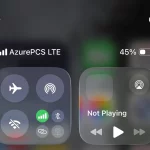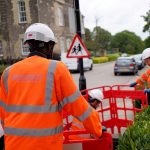Sponsored Links
Ofcom UK Warns of Competition Concerns with Low Superfast Broadband Uptake
Posted: 08th Nov, 2011 By: MarkJ

 The UK communications regulator, Ofcom, has warned that superfast broadband ISP service uptake is still too "low". The issue, which is blamed on the lack of a 'killer app' for superfast services and peoples questionable "willingness to pay" a premium for it, is apparently now causing "uncertainty within the sector".
The UK communications regulator, Ofcom, has warned that superfast broadband ISP service uptake is still too "low". The issue, which is blamed on the lack of a 'killer app' for superfast services and peoples questionable "willingness to pay" a premium for it, is apparently now causing "uncertainty within the sector".The comments emerged today as part of a speech given by Ofcom’s CEO, Ed Richards, to the Total Telecom World conference in London on competition and investment in superfast broadband. At the event Richards claimed that teenage children were the only kill app for 'superfast' uptake and questioned why, against a background of rising demand for content, that this should be the case.
Ofcom’s CEO, Ed Richards, said:
"Amid a cornucopia of entertainment and information services, and the promise of advanced telemetry, e-health and interactive education, it is interesting that the only ‘killer app’ we have so far is the presence of teenage children.
Social networking, streaming and sharing from the teenage bedroom, leading to local contention, the victim of which is the person typically paying the bill, seems to be among the strongest reasons for adopting superfast broadband.
But as an approach to promoting superfast broadband take up, ‘having more teenage children’ seems a little long term, and a little distant from reality."
"Amid a cornucopia of entertainment and information services, and the promise of advanced telemetry, e-health and interactive education, it is interesting that the only ‘killer app’ we have so far is the presence of teenage children.
Social networking, streaming and sharing from the teenage bedroom, leading to local contention, the victim of which is the person typically paying the bill, seems to be among the strongest reasons for adopting superfast broadband.
But as an approach to promoting superfast broadband take up, ‘having more teenage children’ seems a little long term, and a little distant from reality."
Richards goes on to correctly identify that Local Loop Unbundling ( LLU ), which allows ISPs like O2 , Sky Broadband and TalkTalk to gain more control over BT's telephone lines and to thus offer cheaper / more flexible services, is the "primary basis of competition in current generation ‘late copper’ [ ADSL / ADSL2+ broadband] services". Applying this principal to superfast broadband is sadly fraught with difficulty.
Richards explained:
"For superfast broadband the picture is subtly different. Our strategic principle, when applied, does not lead us to conclude that competition based on multiple providers deploying their own fibre networks in the same area will happen, or that it would be effective and sustainable. Industry players seem to share this view."
"For superfast broadband the picture is subtly different. Our strategic principle, when applied, does not lead us to conclude that competition based on multiple providers deploying their own fibre networks in the same area will happen, or that it would be effective and sustainable. Industry players seem to share this view."
Instead Ofcom continues to advocate the "bit stream type remedy", which is a reference to Virtual Unbundled Local Access (VULA). This method does not allow rival ISPs to install their own hardware at the telephone exchange or to take full control of BT's lines (copper LLU does). Separately the regulator also views Physical Infrastructure Access (PIA), where BT does allow rivals access to their fibre / cable ducts, as being more of a solution for the final third (33%) of UK rural areas.
Instead VULA is a "virtual" form of LLU (i.e. nothing like as good or as flexible as true LLU) that offers providers a greater degree of management freedom over the connection. Ofcom would ideally like to see this pushed further but, crucially, continues to let BT set the prices.
Richards continued:
"We are looking to open up as much of the network, control and ultimately value as possible to competition in order to replicate many of the LLU-driven benefits. VULA must therefore meet a number of key requirements, such as local physical interconnection, service agnostic un-contended capacity and place the maximum control possible in the hands of customer CPs.
However, we have allowed BT flexibility over the way it sets its prices for VULA. We’ve done this for two reasons. First, the investment case for NGA is uncertain and risky. Heavy-handed regulation could have serious effects in such a nascent market.
Second, while consumers might be prepared to pay a premium for superfast, we believed that the price for superfast services would be constrained by current generation services – whose prices are either subject to competitive pressures or regulated."
"We are looking to open up as much of the network, control and ultimately value as possible to competition in order to replicate many of the LLU-driven benefits. VULA must therefore meet a number of key requirements, such as local physical interconnection, service agnostic un-contended capacity and place the maximum control possible in the hands of customer CPs.
However, we have allowed BT flexibility over the way it sets its prices for VULA. We’ve done this for two reasons. First, the investment case for NGA is uncertain and risky. Heavy-handed regulation could have serious effects in such a nascent market.
Second, while consumers might be prepared to pay a premium for superfast, we believed that the price for superfast services would be constrained by current generation services – whose prices are either subject to competitive pressures or regulated."
The question is, are consumers "prepared to pay a premium for superfast"? Certainly some are, especially family units with teenagers, although Ofcom's statement would appear to be at odds with the introductions complaint about uptake still being "low".
Many, albeit perhaps not most, people can already get internet download speeds of at or above 6.8Mbps (Ofcom's July 2011 speed report). This is an adequate connection for present day needs (people will need more in the future) and can be had for prices of less than £10 per month (Sky, TalkTalk, Orange etc.) with relatively flexible usage allowances.
By contrast many superfast broadband services tend to attract a premium of at least +£10 and often come with smaller entry-level usage allowances, which presents a tough sell during times of worsening economic problems and job uncertainty. Ofcom, having just suggested that people might pay a premium, now backtracks.
Richards said:
"We recognise the challenges of providing superfast broadband. The costs of fibre deployment are substantial but, as yet, consumers appear to be unwilling to pay very much of a premium for the service it delivers. This puts pressure on the wholesale-to-retail margins.
The answer to this is unlikely to be to put retail prices up – that would simply reduce demand. At a time when disposable incomes are being squeezed generally, consumers are more demanding about value for money not less."
"We recognise the challenges of providing superfast broadband. The costs of fibre deployment are substantial but, as yet, consumers appear to be unwilling to pay very much of a premium for the service it delivers. This puts pressure on the wholesale-to-retail margins.
The answer to this is unlikely to be to put retail prices up – that would simply reduce demand. At a time when disposable incomes are being squeezed generally, consumers are more demanding about value for money not less."
The regulator instead wants to see this problem of demand and price being addressed by developing "new services or combinations of services that exploit the higher bandwidth" of superfast broadband connectivity and fibre optic lines. "Fundamentally, it’s not about regulation, it’s about innovation," said Richards.
Ofcom suggests that BT and other ISPs with their own infrastructure should also attempt to cut costs by developing new solutions, such as a WIRES-ONLY installation (i.e. no engineer visit required) method (BT already told ISPr that they had no plans for this). A simpler network configuration where voice and broadband are delivered over a single converged network is also suggested.
Generally speaking the short to medium term picture remains difficult for superfast broadband, at least short of any dramatic price drops. The longer term looks better, especially with Ofcom mooting Wavelength Unbundling (wavelength division multiplexing) via fibre optic lines.
This method could improve superfast broadband competition by allowing providers to offer "differentiated services on the same single piece of fibre", each able to offer far greater speeds than on offer at present. But that really is a longer term prospect (not before 2015).
Search ISP News
Search ISP Listings
Search ISP Reviews
Latest UK ISP News
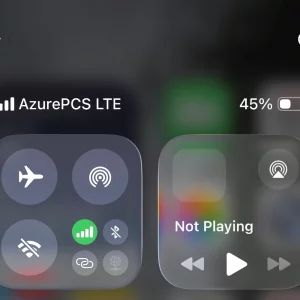



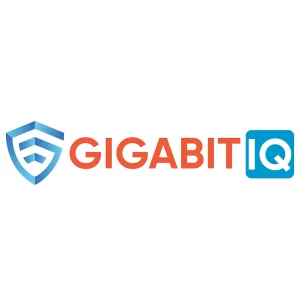
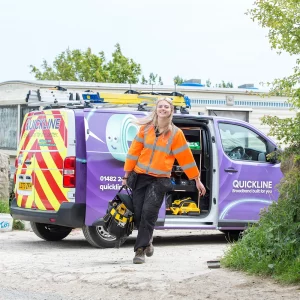
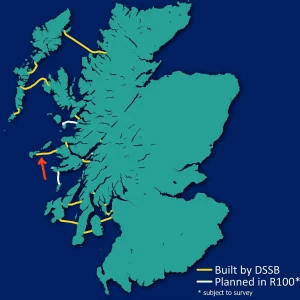

Cheap BIG ISPs for 100Mbps+
150,000+ Customers | View More ISPs
Cheapest ISPs for 100Mbps+
Modest Availability | View More ISPs
Latest UK ISP News
Helpful ISP Guides and Tips
Sponsored Links
The Top 15 Category Tags
- FTTP (6886)
- BT (3911)
- Politics (3108)
- Business (2814)
- Openreach (2691)
- Building Digital UK (2530)
- Mobile Broadband (2515)
- Statistics (2155)
- FTTC (2150)
- 4G (2126)
- Virgin Media (2053)
- Ofcom Regulation (1794)
- 5G (1771)
- Fibre Optic (1615)
- Wireless Internet (1614)
Sponsored
Copyright © 1999 to Present - ISPreview.co.uk - All Rights Reserved - Terms , Privacy and Cookie Policy , Links , Website Rules








